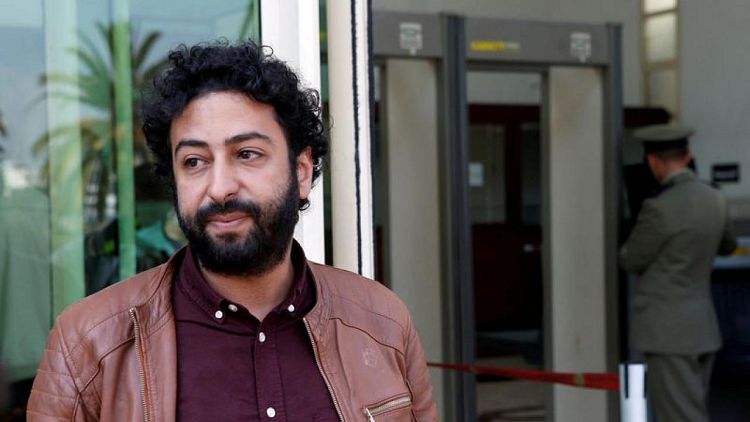CASABLANCA -A Moroccan court on Monday jailed dissident reporter Omar Radi for six years on sexual assault and espionage charges, which he denied, in a case that has alarmed rights groups.
Radi, who has been in pretrial detention for almost a year, said he had consensual sex with his accuser Hafsa Boutahar and rejected all espionage accusations.
Radi's lawyer, Ali Amar, said the charges lacked evidence and that the verdict will be appealed.
Amnesty International said the trial "was marred by blatant breaches of due process".
The verdict was announced 10 days after the same court in Casablanca handed a five-year jail term for sexual assault to another dissident journalist, Soulaimane Raissouni, who also denied the charges.
Both men are outspoken critics of the authorities, public policy, the judiciary and Morocco's human rights record. Raissouni has been on hunger strike for more than 90 days.
Rights activists have accused the authorities of abusing the justice system to silence critical voices and applying the law unevenly, using criminal charges with scant evidence to target political opponents.
Radi's colleague Imad Stitou, whom the judiciary accused of complicity in the alleged sexual assault after he testified as a witness, was sentenced to one year in jail, half of which was suspended.
In both cases, the plaintiffs said the defendants' efforts to cast the charges as politically motivated denied them their right to seek justice.
Last week the U.S. State Department said the verdict in Raissouni's case raised concerns over fair trials and free speech in Morocco.
Morocco said the U.S. reaction was based on biased information and that neither trial was related to the defendants' work. It said the judiciary is independent and that courts and the police were only implementing national laws.
